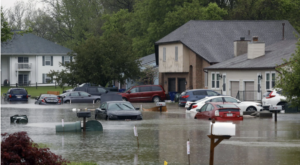Homeowners insurance is a type of property insurance for people who own their own home. This coverage covers your liability if someone is injured or things are damaged on your property, including the home itself, your belongings, and your property. Most homeowners insurance plans cover a wide variety of risks, including fire, theft, crime, and some natural disasters. The purpose of insurance is to protect a homeowner’s investment and give them peace of mind about their money if something bad happens.
1. Key Components of Home Insurance:
A typical home insurance policy has a few key components. The first type is homeowners insurance, which means it covers the home itself. This coverage can help you pay for repairs or rebuilding if your home is damaged or if you die as a result of a covered peril.
Personal property insurance is another important component. This covers the homeowner’s possessions, such as furniture, electronics, and clothing. This security guarantee ensures that homeowners have access to new items if their personal belongings are lost or damaged as a result of an insured event.
Another important part of homeowners insurance is liability coverage. This protects homeowners if someone is injured on their property and sues them. Liability insurance can help pay for legal fees and hospital bills resulting from such an incident.
Finally, many homeowners insurance policies include additional coverage for living expenses. This can help pay for temporary housing if the damage is enough to make the home uninhabitable.
2. Learn More About Renters Insurance:
This is different from renters insurance, which is provided to people who rent their home rather than own it. Home insurance and this type of coverage protect you in similar ways, but there are some important differences. Typically, renters insurance protects a tenant’s belongings from things like fire, theft, and damage to the rental unit.
Physical damage to a building is the responsibility of the landlord, not the tenant. However, renters insurance does cover liability. This coverage protects the tenant if someone gets injured in the rental space and chooses to sue. Additionally, renters insurance typically covers additional living expenses, just like homeowners insurance. This can help renters find temporary housing if their units become uninhabitable.
3. Key Differences Between Homeowners and Renters Insurance:
The main difference between renters insurance and homeowners insurance is the type of coverage they provide. Homeowners insurance covers the entire home, including the building itself. Renters insurance, on the other hand, only covers your belongings and liabilities. People need to understand this difference to choose the type of insurance that is right for them.
Ownership issues are another big difference. Mortgage lenders often require homeowners insurance to protect their home investment. Landlords, on the other hand, generally do not require renters insurance, but many do for the safety of their tenants.
4. Who Should Get Homeowners Insurance?
Anyone who owns a home, whether it’s a single-family home, a condo, or an apartment, should have homeowners insurance. Homeowners should consider the risks involved, such as fire, theft, and natural disasters, and determine how important it is to protect their investment. Additionally, mortgage lenders often require borrowers to have homeowners insurance as a condition of the loan, making this even more important.
Home insurance can give you peace of mind knowing that your finances are covered should something bad happen. It gives people peace of mind about their investment and saves them the huge cost of repairs if their property is damaged.
5. Why Do People Need Renters Insurance?
Renters insurance is important for anyone who lives in a rental property, such as a house, unit, or apartment. Renters should know that even if their landlord has homeowners insurance, it does not cover their personal belongings. If a tenant does not have renters insurance, they could lose a lot of money if their belongings are stolen or destroyed.
Many landlords tell their tenants to get renters insurance, and some even make it a condition of the lease. Renters insurance is inexpensive and can protect your valuables, especially if you own electronics, furniture, or other expensive items.
7. Coverage and Deductible Limits:
Both homeowners insurance and renters insurance have limits on what is covered and how much you must pay. The coverage limit is the maximum amount the policy will pay for a covered loss. Policyholders should consider their needs and choose the right amount of coverage to ensure they are properly protected.
The amount a customer must pay out of pocket before the insurance begins paying out is called the deductible. Policies with higher deductibles typically have lower premiums, while policies with lower deductibles typically have higher premiums. People should carefully consider how they will pay their deductible if they need to file a claim when choosing a policy.
8. Choose the Best Option:
People should carefully consider their needs and circumstances when choosing between homeowners insurance and renters insurance. Homeowners should consider how much their home is worth, what risks come with owning a home, and whether they can afford repairs or replacements.
Renters, on the other hand, need to consider how much their belongings are worth and the risks that come with living in a rental property. It can be helpful for both homeowners and renters to discuss your options with an insurance agent or broker and find the coverage that best suits your needs.
Conclusion:
In summary, homeowners insurance and renters insurance are two different types of insurance that protect both homeowners and renters. To make an informed choice, you should understand the key differences between each policy type, as well as the coverage options, costs, and possible exclusions.
Homeowners and renters can ensure that they have the right coverage to protect their investments and personal belongings by carefully evaluating their needs and seeking advice from an insurance professional. Insurance is an important part of financial security. Whether you own or rent a home, it can give you peace of mind if something bad happens.
FAQs:
1. What are the key differences between renters insurance and homeowners insurance?
Homeowners insurance covers the entire home, including the building and your personal belongings. Renters insurance, on the other hand, only covers the tenant’s belongings and their liability for any injuries that occur in the rented space.
2. If I own my home, do I need homeowners insurance?
Yes, everyone who owns a home should have homeowners insurance. It saves your investment by paying for property damage and eliminating your liability.
3. If my landlord is already insured, do I still need renters insurance?
It’s important to have renters insurance because your landlord’s insurance doesn’t cover your personal belongings. It keeps your belongings safe in case they’re stolen, burned, or otherwise damaged.
4. What is the average cost of home insurance?
The cost of home insurance varies depending on the location of the home, its age, square footage, and the amount insured. On average, homeowners pay more than renters, but rates can vary considerably.
5. What does renters insurance cover?
Personal property, liability, and additional coverage for living expenses if the rental space becomes uninhabitable are all common types of renters insurance.



